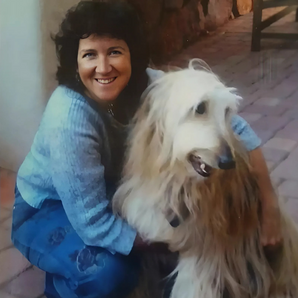Can dogs get depressed?
It is not uncommon for people to believe that dogs do not experience emotions. Nonetheless, they do have brains that pump out some of the same chemicals that we do, and they also develop emotional intelligence up to a certain point. As stated by Psychology Today, most dogs are capable of feeling:
- Excitement/Arousal
- Distress
- Contentment
- Disgust
- Fear
- Anger
- Joy
- Suspicion/Shyness
- Affection/Love
Dogs may not be able to express these emotions as easily as we can, but that does not mean they are not feeling that way. And although ‘depression’ itself may not be on this list, that does not mean our pets are incapable of falling into a dispirited lull. If they can feel contentment, they can also feel the opposite of that. And when combined with a long enough period or a severe infliction of emotional trauma, dogs can turn so far inward that they no longer open their personality to humans.

How can I tell if my dog is depressed, or just tired/bored?
Unfortunately, there is no magic ‘mood ring’ that will tell us how our dogs are feeling (How cool would a ‘mood collar’ be though? Just saying!). But with research studies and the slow evolution of domestic pets’ expressive abilities, there are now a handful of ways to determine if they are experiencing depression. The Kennel Club UK discloses that owners should be cautious of the following signs:
“Withdrawn – the dog may have little enthusiasm for exercise or games or joining in with the things they normally enjoy
Lethargic – they may be sleeping more than usual
Loss of appetite – they may lose interest in food or there may be other changes to eating patterns
Inability to settle – the dog may appear restless, not sleeping well or deeply, or other changes to sleeping patterns
Behavior changes – the same mood states that can present as apparent depression can present as other issues depending on the dog’s personality, including chewing, attempts at escapology, increased reactivity, loss of toilet training, and even aggression”
Of course, displaying one or two of these symptoms periodically is normal. Environment changes, new additions to the family, or even alterations to your pet’s diet can cause them to demonstrate these mannerisms. The key is to be mindful of any sudden shifts that might have caused your pet some physical, mental, and/or emotional discomfort. Also, be conscious of how long these symptoms present themselves. Some pups are more resilient and may only need a few days to recover.
Can my dog experience seasonal affective disorder?
In muddy, wet weather, we tend to sacrifice our dog’s exercise. Walks can become a nuisance between snow and icy temperatures. Therefore, our dogs receive fewer opportunities to do what they enjoy. Additionally, not all owners recognize the needs and desires of their dogs. Every dog has unique preferences as to what activity truly makes their tail wag. The Kennel Club UK clarifies this as being “similar to someone who loves nothing more than doing yoga being forced to only do marathon running! Yes, you’d be getting the exercise you need, but you wouldn’t be enjoying it, and would probably be feeling pretty fed up about it! A lack of being able to do the things they have been selectively bred to do, or just the things that they love, can result in a whole host of behavior problems, some of which will present a lot like depression.” It is worth investigating different forms of exercise to find your pet’s favorite. Search for the most popular exercise methods that are specific to your dog’s breed and look into indoor alternatives for those occasional rainchecks, too.
If you know your pet’s favorite activity and have been keeping up with an appropriate regimen, your dog could be suffering from SAD. As I mentioned earlier, they have the same basic brain structure as humans. Though smaller and more simplified, a dog’s brain produces many of the chemicals that ours do and therefore undergoes similar highs and lows. Melatonin, the chemical responsible for sleep regulation, is produced in the pineal gland when it is dark (typically at night). However, darker weather during the winter months can lead to an increase in melatonin production. Another chemical that can be affected by the weather is serotonin. Serotonin impacts mood, appetite, and sleep, and is often referred to as ‘the happy chemical.’ Sunlight is needed to create it, so cloudy days can result in low serotonin levels. One way to tell if your pet is lacking in serotonin is to keep an eye on their treat begging. Food causes a boost of the happy chemical, so dogs might be pleading for snacks more often.
Lastly, it is worth noting that this is not an uncommon condition. The People’s Dispensary for Sick Animals found that about two out of five dog owners noticed a significant negative change in their pet’s emotional state during the winter months (Psychology Today). Further, half of the dog owners believed that their dogs spent more time sleeping, with almost 40% declaring a drop in their pet’s total activity.

How can I tell if it’s SAD or something else?
There is no definitive method to diagnose your dog with SAD. Instead, the best way to figure out if you are dealing with SAD is through the process of elimination. You should consider all other valid, rational explanations for a difference in their mood before jumping to the SAD conclusion. The Kennel Club UK recommends asking yourself the following list of questions:
- Has anything changed in your dog’s life, environment or social group?
- Is your dog getting their usual amount exercise and stimulation? Are they getting the right sort of exercise and stimulation to give them an outlet for their hard-wired needs and loves?
- Is your dog getting as much contact with you as usual?
- Are you spending enough quality time with your dog? This can take shape through exercise, games, training, dog sports or even simply hanging out together.
- Is your dog bored? Can you relieve them of their boredom with an additional walk, short training sessions throughout the day, occasional games, interactive toys, etc.?
- Does your dog have any other behavior issues (especially fears and phobias that may be more prevalent for any reason)?

Finally, do not forget to consider how you might be affecting your dog’s mood. Animals are intuitive by nature, but pets learn the distinct nuances of their owners’ personalities overtime. Your dog might be better at reading you more than you realize! Has your mood changed lately? Perhaps you are suffering from a bit of SAD yourself, and your dog is picking up on those feelings. Seasonal affective disorder could be the culprit, but chances are greater that your dog’s depression has a simpler source.
Thank you to the following organizations:
https://www.psychologytoday.com/ca/blog/canine-corner/201301/do-dogs-have-winter-blues-or-suffer-sad
https://www.petmd.com/behavior/does-seasonal-affective-disorder-affect-pets







